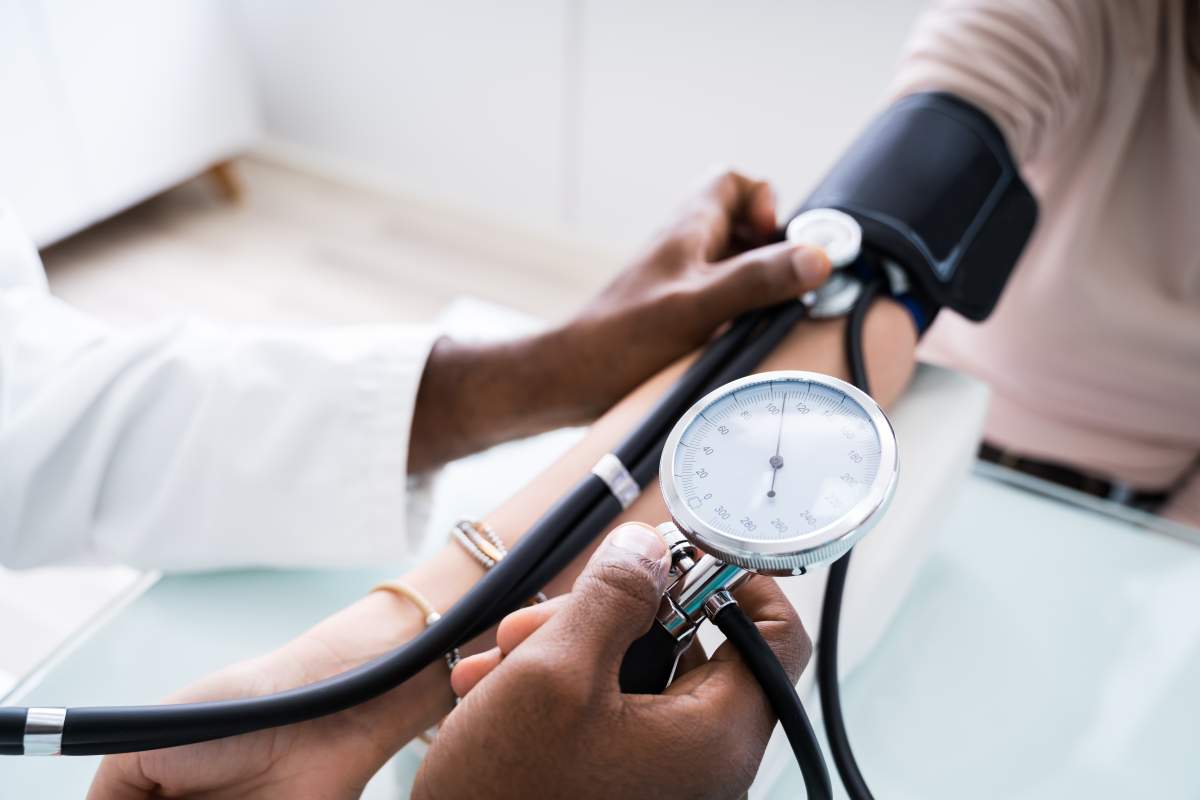Chances are that you have tried the blood pressure kiosk at your local pharmacy. These user-friendly machines measure blood pressure when you’re seated on the bench and place your arm in the cuff.

While many people have used the kiosks at pharmacies, most don’t realize the pharmacist can help with their blood pressure concerns, too.
“Sometimes people forget that pharmacists have really good capacity to screen people even for things like hypertension,” says Shelita Dattani, vice-president of pharmacy affairs for the Toronto-based Neighbourhood Pharmacy Association of Canada.
In partnership with Marealis Health, a biotech company developing marine-based natural health products, we asked Dattani what kinds of pharmacy resources are available for people concerned about hypertension, from the kiosks to the pharmacists themselves.
Understanding hypertension
Hypertension is when blood pressure regularly measures higher than normal and is often referred to as simply high blood pressure. It’s a so-called silent condition that doesn’t typically show side effects or symptoms, even if you’ve had it for some time.
According to the Heart & Stroke Foundation, six million Canadian adults have high blood pressure, but approximately 17 per cent are unaware of their condition. The foundation also reports that only 66 per cent of Canadian adults with the condition have it treated and under control.

Get daily National news
Monitoring blood pressure is even more important for all genders as you reach a certain stage in life. “Women don’t get as commonly assessed for hypertension as we should be,” Dattani says. “But I would also encourage those over the age of 50 to proactively look into it.”
In addition to having blood pressure regularly checked, making habit changes like eating less salt, quitting smoking, and getting at least 150 minutes of physical activity each week can help reduce the risk of high blood pressure, per the Heart & Stroke Foundation.
How pharmacists can help people with hypertension
“Pharmacists are the most accessible health-care providers. Your pharmacist and pharmacy team are a good resource for lots of different things,” Dattani says. She notes that your pharmacy may not even require an appointment (though it’s best to call ahead to check), so you may be able to simply drop by to discuss your hypertension concerns.
She adds that taking a proactive approach with your pharmacist is a good idea as a potentially preventive measure. According to Hypertension Canada, blood pressure that’s not well controlled can lead to a number of more serious health consequences including stroke, a heart attack or heart failure, kidney disease and much more.
READ MORE: Hypertension is a ‘silent killer’ — but many still don’t know the risks
While the blood pressure kiosks are one resource, your pharmacist may also be able to check your blood pressure manually if your pharmacy doesn’t have a machine. A one-on-one consultation with a pharmacist is another option.
“Pharmacists can screen and sometimes even identify people who might not have checked their hypertension in a while. They may even be able to adjust their medication dose if their dose is not appropriate,” Dattani says.
What to ask pharmacists about blood pressure
A consultation may also involve a discussion around lifestyle changes and other ways to reduce your risk of high blood pressure. “It’s always a good idea to discuss: Are there non-pharmacological options? Are there vitamins, supplements, or other things I can take as either an adjunct or main treatment for my blood pressure? A conversation with a pharmacist and a review of all medications is also a really good idea,” Dattani explains.
READ MORE: 5 popular questions people ask their pharmacists
Along with reviewing your medications with a pharmacist, you can discuss supplement and non-prescription options.
“However, for anyone who’s considering taking a supplement, it’s really important to talk to your health-care provider first,” Dattani says. “Because you can go in and purchase it yourself, I’d encourage people to go and talk to their pharmacist to see how it might fit within your overall regimen.”

